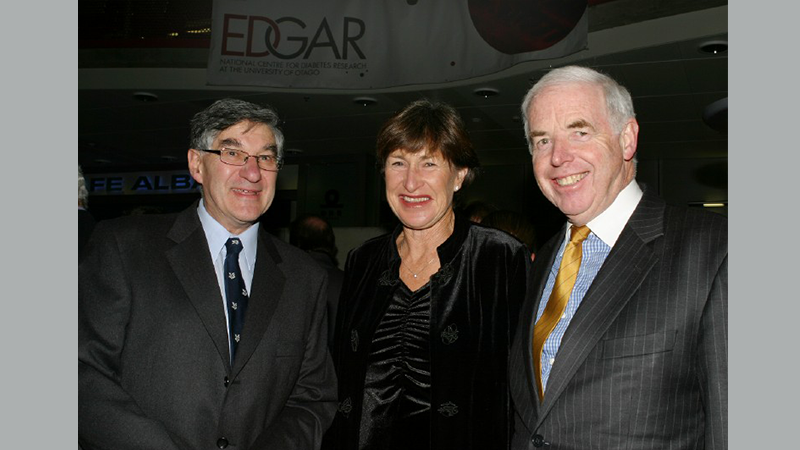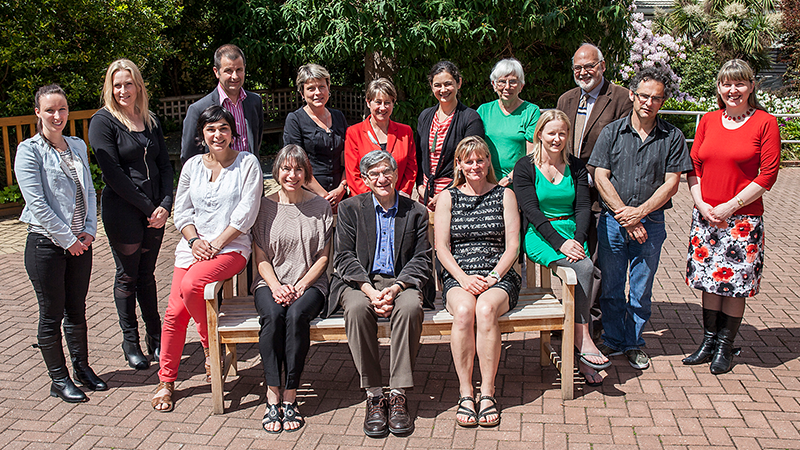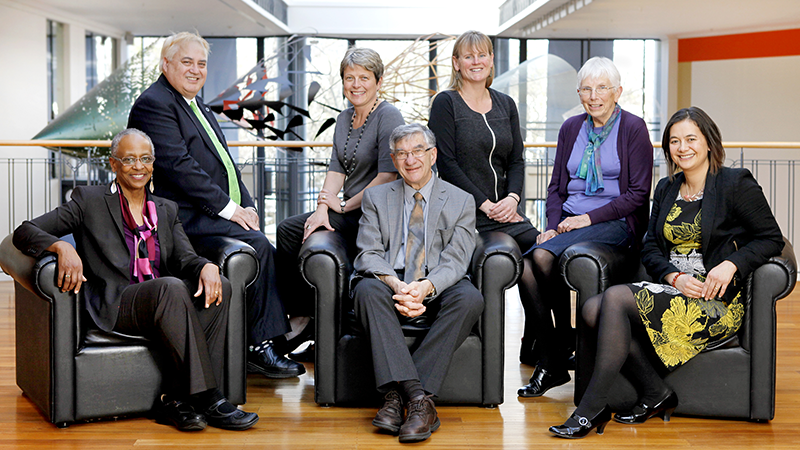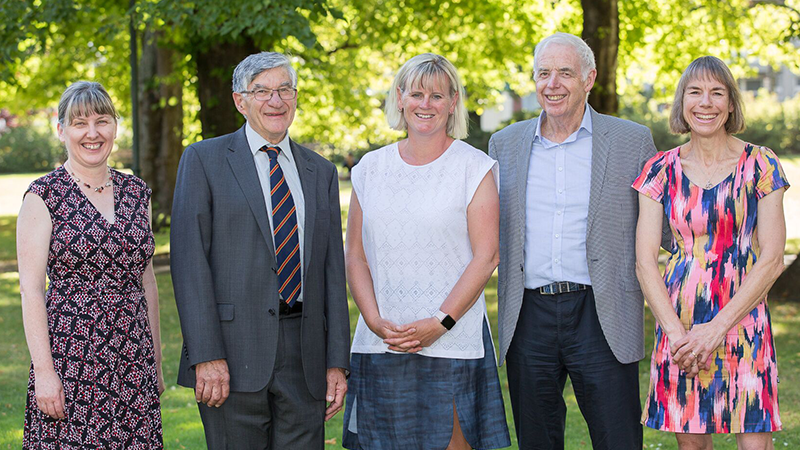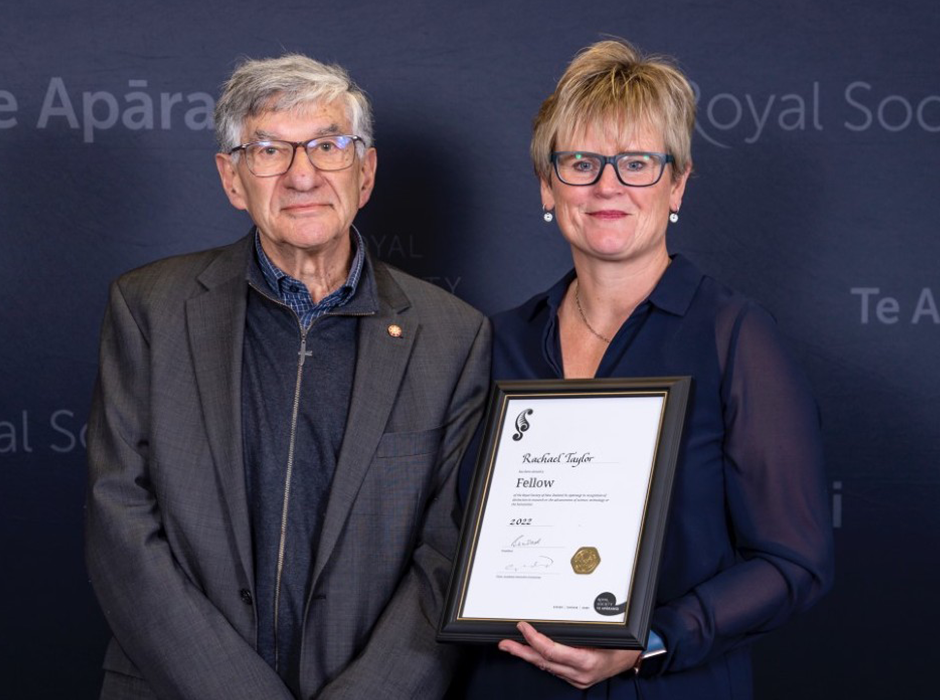
Leading the way… the inaugural Director of Edgar Diabetes and Obesity Research, Professor Sir Jim Mann, and current Director Professor Rachael Taylor mark the occasion of Professor Taylor becoming a Fellow of the Academy of the Royal Society Te Apārangi this year.
Making a real difference to the lives of people affected by diabetes and obesity continues to drive the work of Edgar Diabetes and Obesity Research, but the way researchers are going about it speaks to an exciting future.
“We’ve always done community-based research and tried to take Te Tiriti and equity issues into account, but now we’re putting equity front and centre,” says Professor Rachael Taylor, Director of Edgar Diabetes and Obesity Research (EDOR).
Obesity and diabetes are at epidemic proportions in Aotearoa New Zealand, with major implications for individuals, whānau and the healthcare system.
A University of Otago Research Centre based in the Dunedin School of Medicine, EDOR is unique within Aotearoa and has achieved national and international recognition for its research findings. The researchers come from a range of disciplines, including biomedical science, public health, biostatistics, Māori health, nutrition and sleep research.
The Centre celebrates its 20th anniversary this year with a symposium on 24 November and while this is a chance to reflect on what has been achieved to date, there will also be a strong focus on the Centre’s future direction.
EDOR is led by an impressive team – inaugural Director Professor Sir Jim Mann, now a Co-Director, is internationally renowned and was knighted last year for his decades of work demonstrating links between nutrition and health.
Professor Taylor has also received significant recognition for her research on how sleep, diet and activity affect weight management in children and was elected a Ngā Ahurei a Te Apārangi fellow earlier this year. She and her team, including Co-Director Dr Justine Camp (Kai Tahu, Kāti Mamoe, Waitaha), have recently received a $5 million Health Research Council programme grant to research ways to improve sleep for tamariki and rangitahi.
Co-Director Dr Andrew Reynolds, a Hynds-Heart Foundation Senior Research Fellow, specialises in how diet and physical activity link to non-communicable diseases like diabetes. Dr Reynolds has led the development of updated global nutrition guidelines, including for the World Health Organization.
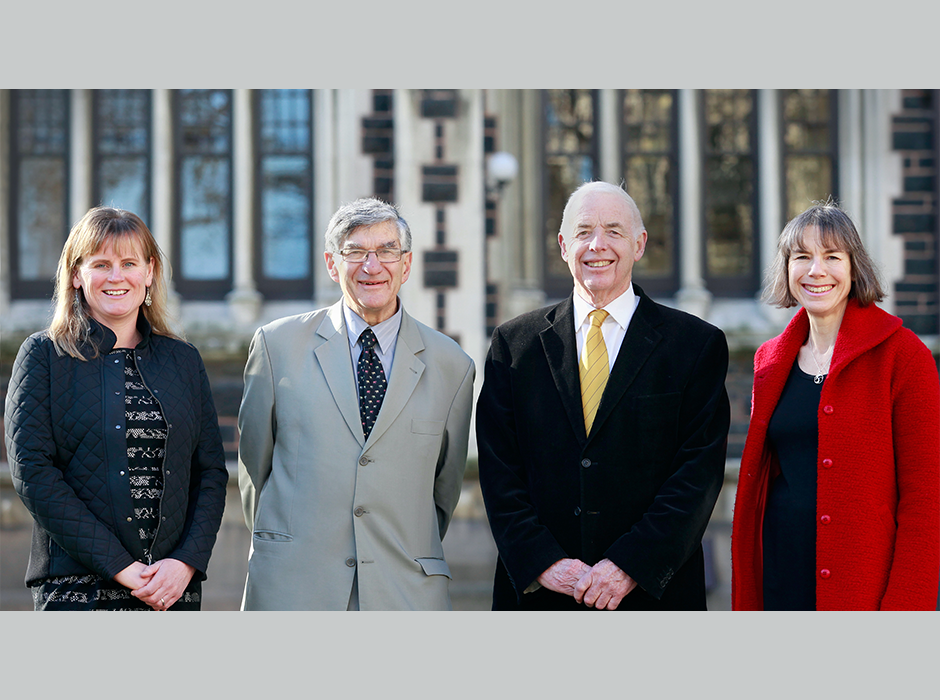
EDOR Directors Professor Rachael Taylor (left), Professor Jim Mann (second from left) and Associate Professor Kirsten Coppell (right) with Sir Eion Edgar in 2014.
Professor Taylor says an important development in the way EDOR research is conducted is the move towards a strengths-based, co-design approach with Māori and Pacific communities, who have the highest rates of diabetes in Aotearoa.
“We’re working with these communities to find out what’s important to them in the obesity/diabetes space.
“We’re designing research programmes based on overall wellbeing and connectedness. The idea is that they have the same end goal, but with additional positive outcomes, for example around sleep.”
Dr Camp says the key is doing this work in partnership with communities.
“This is about building stuff with them and for them, as opposed to it being about them.”
That means changing the approach from the very beginning. As an example, Dr Camp says community feedback showed just translating current best practice advice into te reo Māori didn’t work.
“People want useful, relevant ways of doing things that are designed by Māori, for Māori. We started doing that in our sleep research to acknowledge the connection between health and wellbeing, and the natural world.
“Providing 1950s advice designed for people with white picket fences doesn’t work for those who might be living in emergency housing, for example.”
From then to now
Originally known as the Edgar National Centre for Diabetes Research and Education, the Centre was founded in 2003 principally through a generous gift from the Eion and Jan Edgar Charitable Trust. The funding came through the Leading Thinkers initiative, Otago’s first major development campaign, with Professor Mann receiving a prestigious Leading Thinkers Chair.
Sir Eion became the Centre’s first Advisory Board Chair, a role now held by Sir Bruce Robertson.
Professor Mann, joined initially by only two part-time staff, began the work that would see the Centre play a major role in providing advice at a national and international level and contributing to the development of policy in the areas of diabetes and obesity.
“People talk about a tsunami or epidemic of diabetes. It’s one of our major health issues, but we’re also trying to create awareness of the importance of this disease as a societal and economic issue in this country,” he says.
The Centre now comprises 24 research groups from 15 different Otago departments on the Dunedin, Christchurch and Wellington campuses, and at the University of Glasgow.
External research funding obtained by EDOR members over the past 20 years totals more than $200 million and more than 2000 articles have been published in international journals. Many of the Centre’s studies over the past two decades have contributed to public policy and guidelines, both nationally and internationally.
Anniversary symposium
The EDOR 20th anniversary symposium will be held at the Otago Museum's Hutton Theatre on Friday, 24 November.
The research symposium, which is free and open to the public, will celebrate two decades of research and set out the Centre’s vision for the future.
The keynote speaker, Professor Mike Lean from the University of Glasgow, will talk about his ground-breaking work on the remission of type 2 diabetes using the DiRECT approach, a dietitian-supported weight loss programme. This approach is currently being rolled out to all eligible people with type 2 diabetes in England.
A range of other speakers will cover topics on nutrition, sleep, obesity and influencing health policy.
Find out more and register here.
Other useful links
- EDOR webpage
- Report – The Economic and Social Cost of Type 2 Diabetes
- Kōrero by Andrea Jones, Team Leader, Divisional Communications

